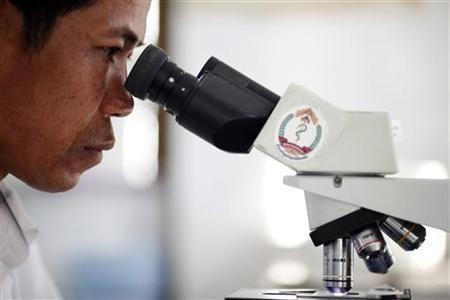A highly drug resistant rare strain of gonorrhea has been detected in the northern parts of England prompting a national alert. According to reports, the super-gonorrhea strain has had 15 cases reported by the Public Health England up to now.
The British Association for Sexual Health and HIV confirmed these reports quoting the dreaded dangers of the disease. The association added that information given to PHE's sexually transmitted bacteria reference unit (STBRU) of similar cases being resistant to the azithromycin drug have formerly been rare.
According to SBS, the outbreak of the rare gonorrhea was first detected in Leeds in March and has since been spreading, with cases reported by victims from Oldham Macclesfield and Scunthorpe. Majority of the patients are said to be heterosexual although some cases have reported to be quite different from other areas of England.
As reported, the government is taking measures to avoid future mushrooming of the disease and is also undertaking researches in treatment.
"An outbreak control team meeting has been convened and STBRU are currently performing next generation sequencing on these strains to better understand the molecular epidemiology," the association told BBC. "PHE is concerned that the effectiveness of current front-line dual therapy for gonorrhea will be threatened if this resistant strain continues to spread unchecked."
As conveyed by Peter Greenhouse based in Bristol, who is a consultant in sexual health, there may be other multiple unreported cases of the drug-resistant gonorrhea all over England.
For now, a total of 35,000 gonorrhea cases were reported in Britain in 2014 with patients mostly being under the age of 25. Among them, 10 percent of the victims did not experience symptoms posing a great danger.
Gonorrhea is the most frequent sexually transmitted disease in Britain. However, the azithromycin highly-resistant gonorrhea is the first rare infection of its type to prompt national alert.



























